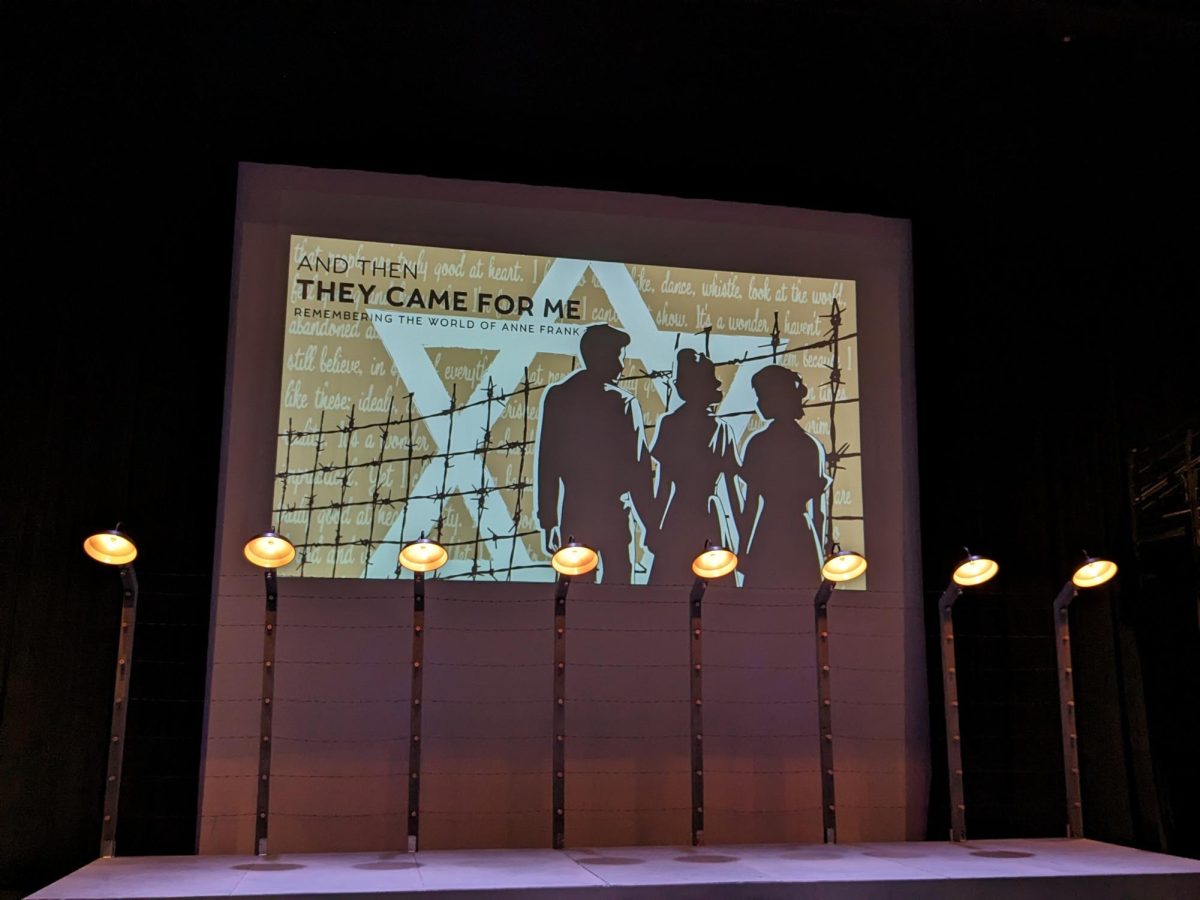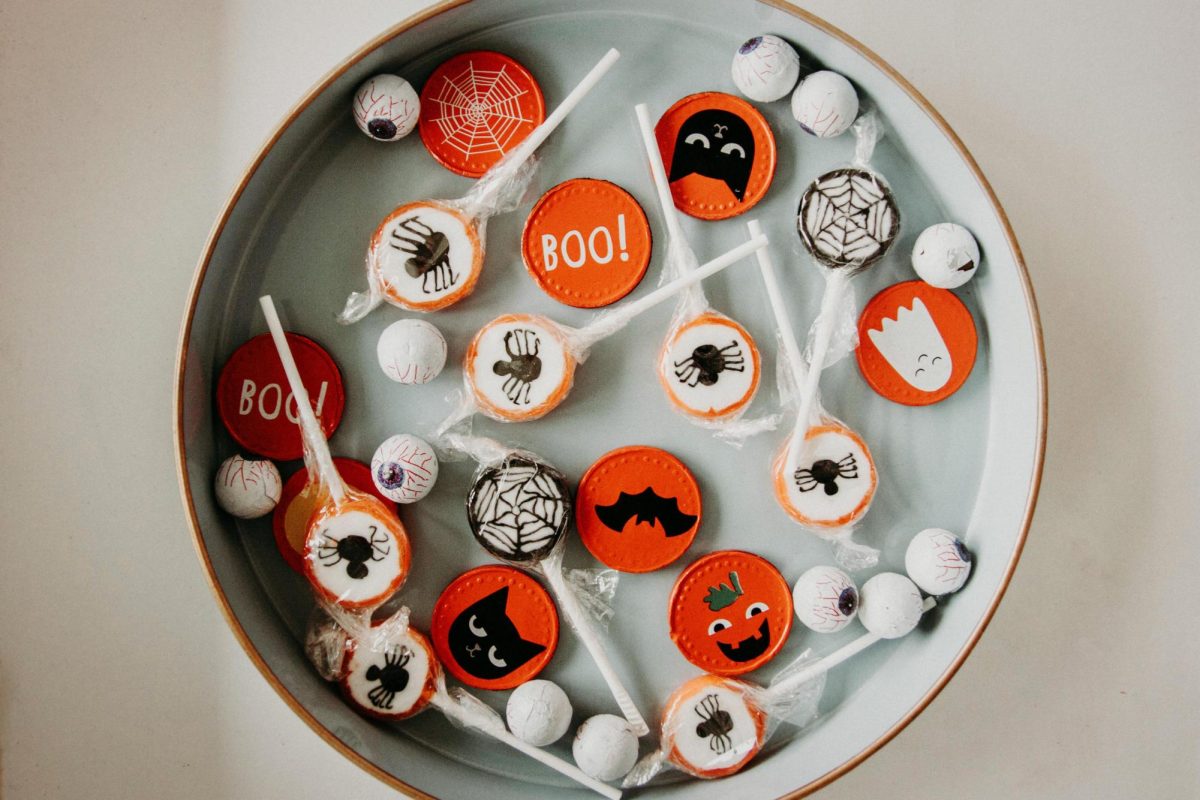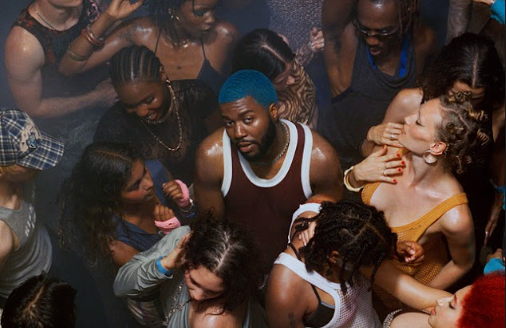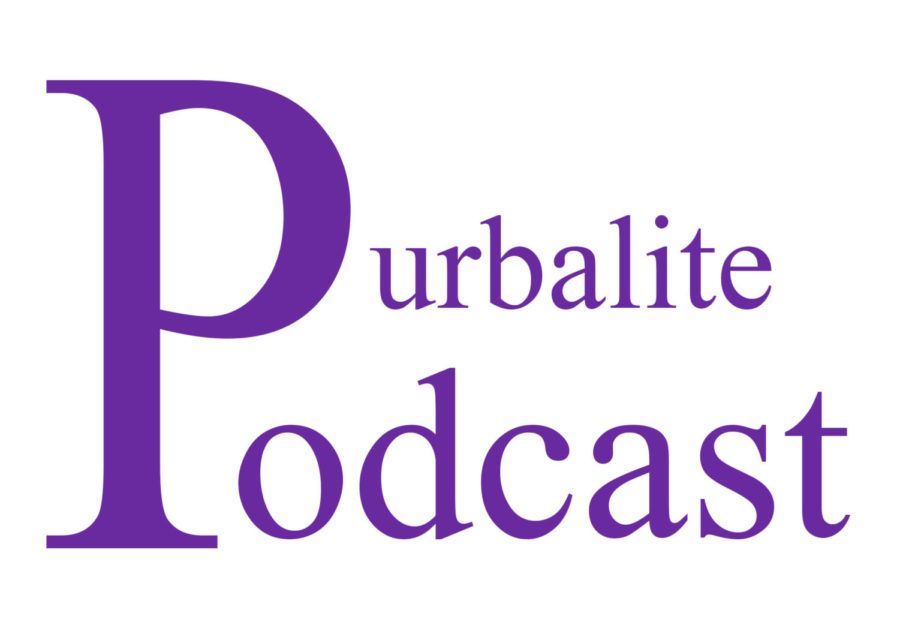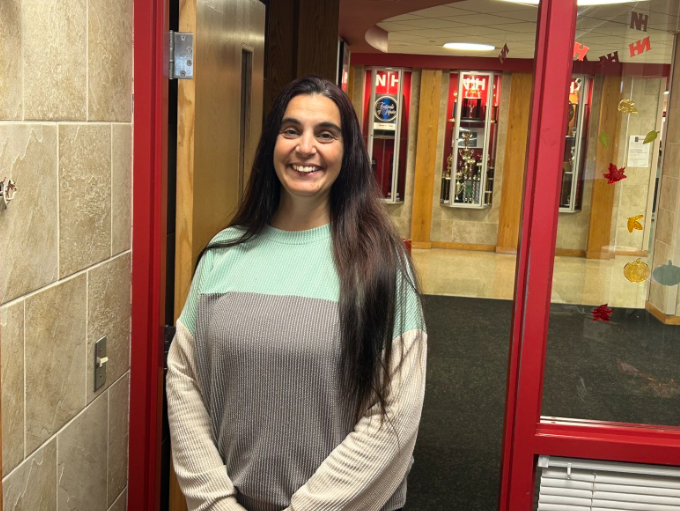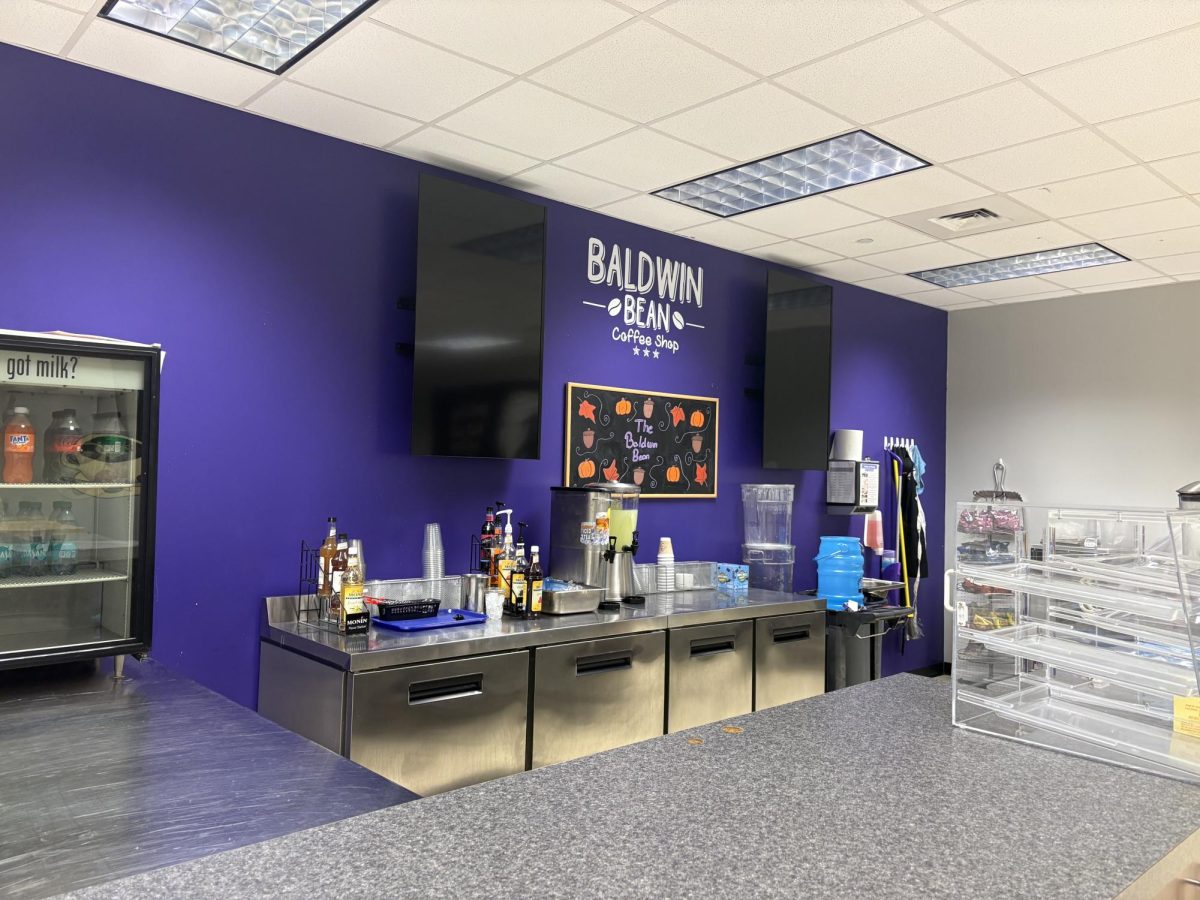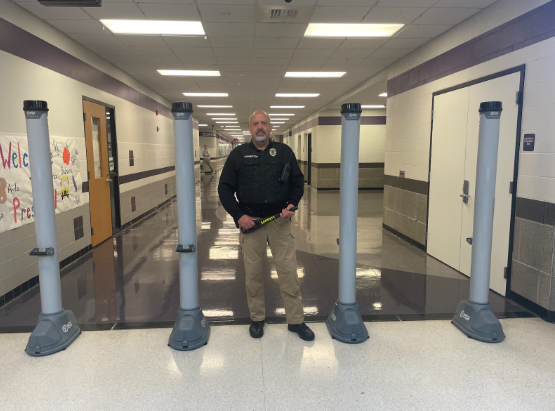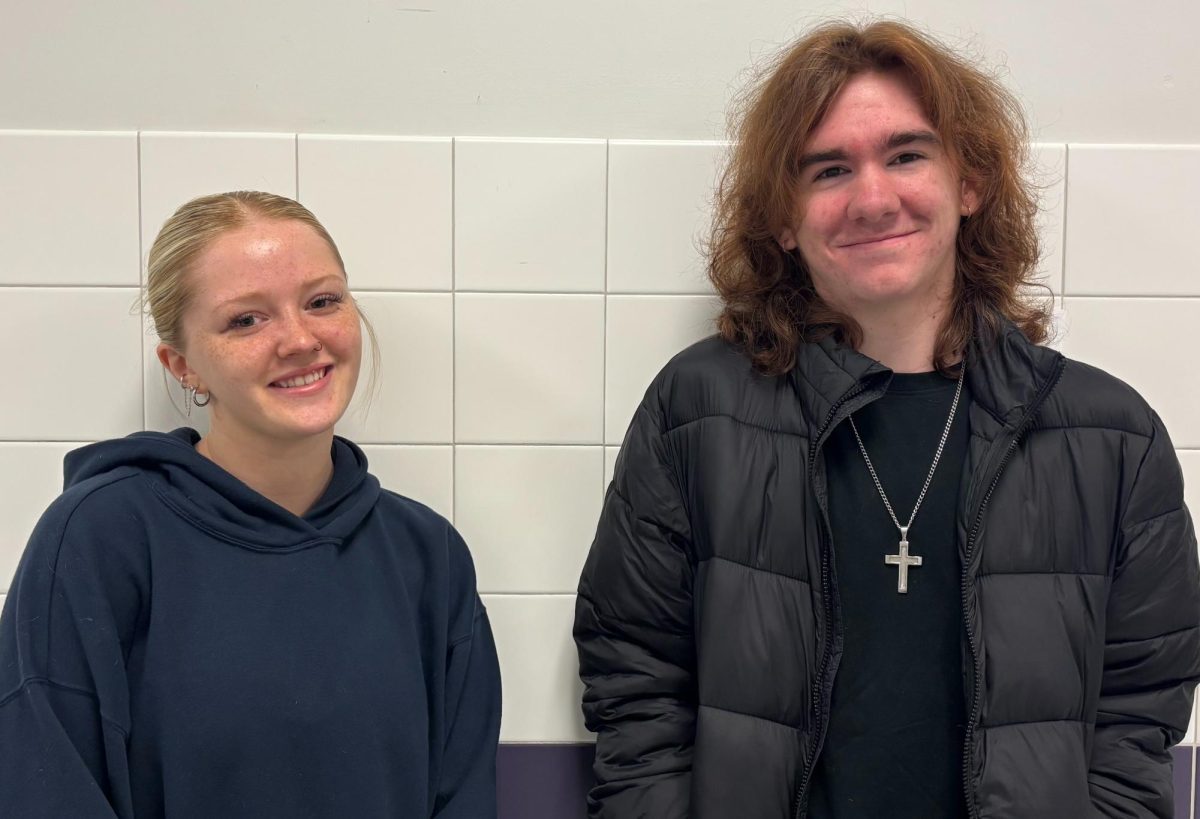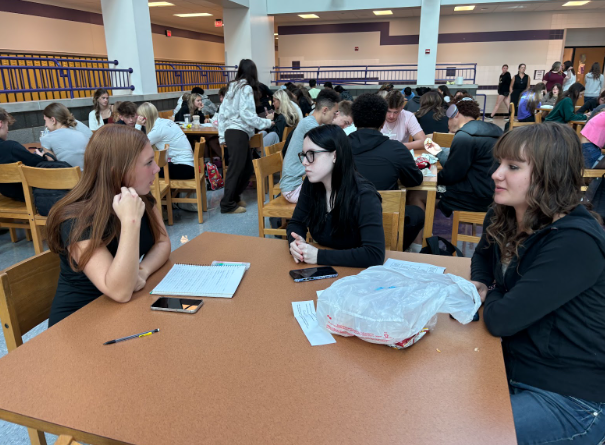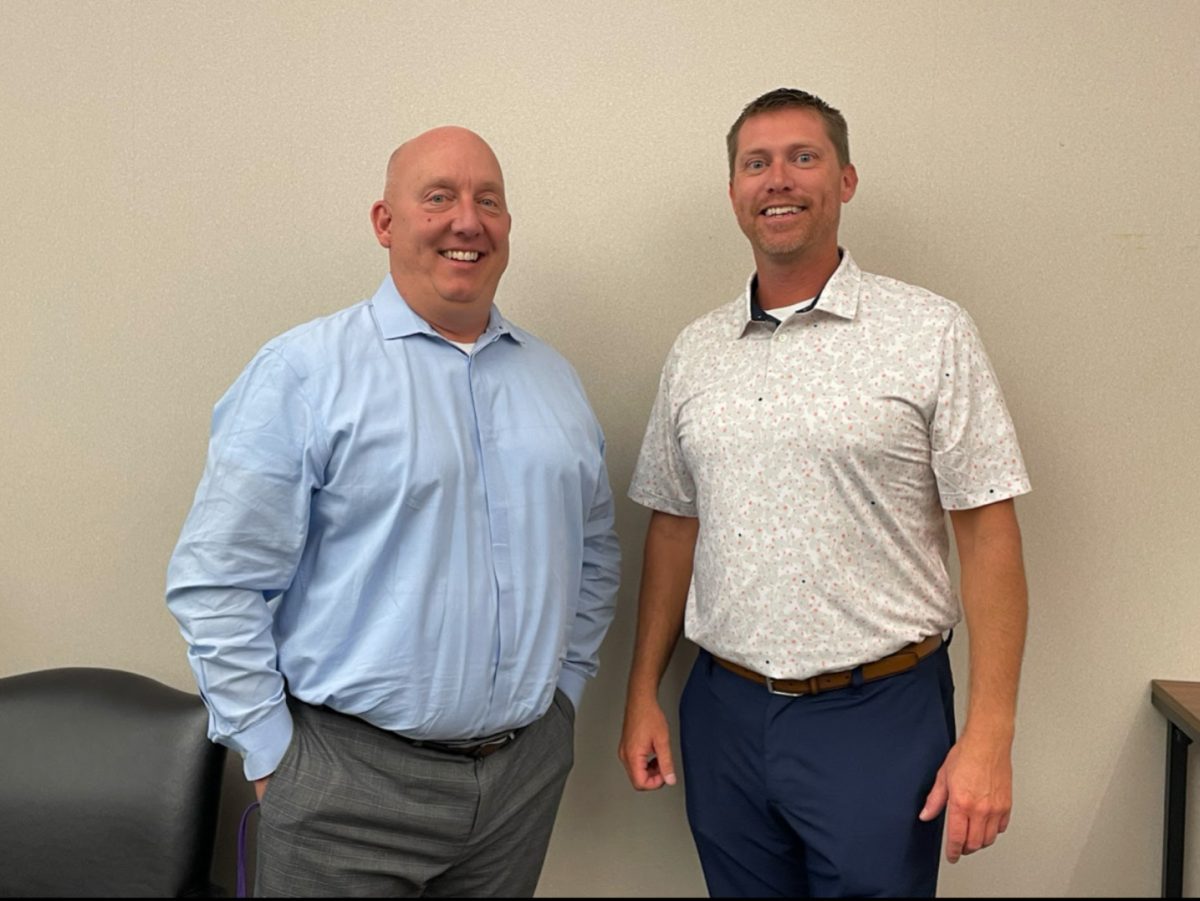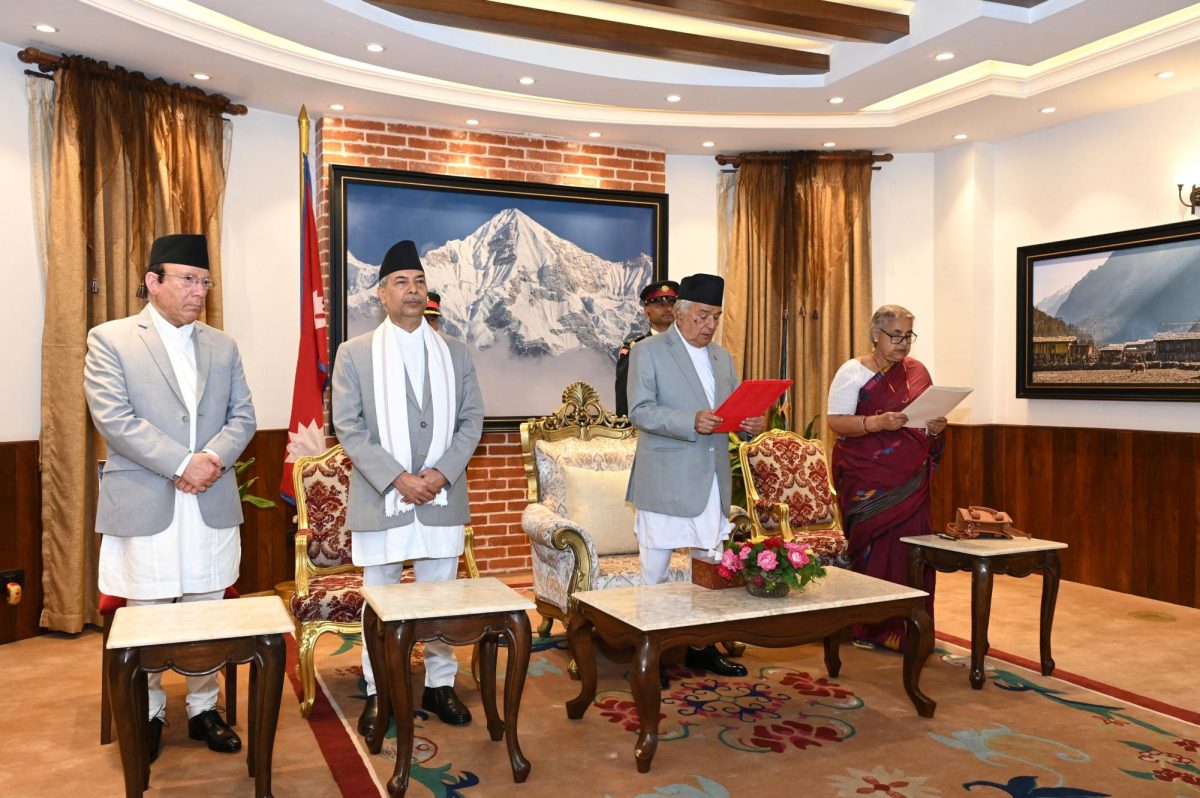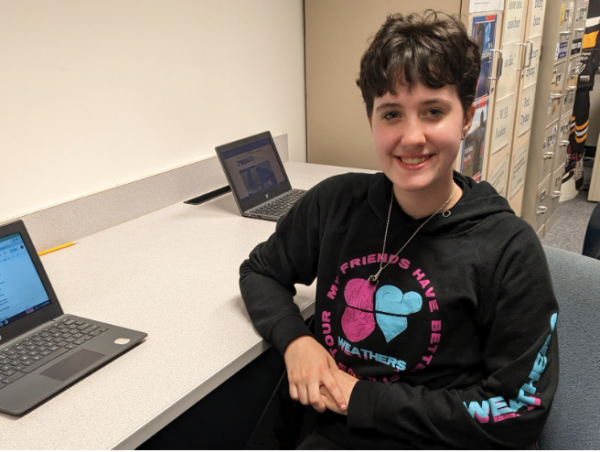Five Baldwin students participated in a panel discussion on the importance of Holocaust education after a performance of the play And Then They Came for Me on Friday at Prime Stage Theatre.
I was one of them, joined by junior Amelia Landis, junior Samantha Niggel, senior Tumi Ojo, and junior Lena Skipina. We got this opportunity through Baldwin’s LIGHT Club, which stands for Leadership through Innovation in Genocide and Human Rights Teaching.
As the president of the LIGHT Club, I have spent a large part of my high school career learning about the Holocaust and making sure my classmates understand how historic antisemitism impacts modern spaces. This work is how we got connected to Prime Stage Theatre.
And Then They Came for Me is about Eva Geiringer Schloss and Ed Silverberg, who were teenage friends of Anne Frank when the Nazis came to power. Both Ed and Eva are Holocaust survivors.
The play told the stories of the Silverberg and Schloss families by having the actors interact with recordings of the survivors. As we heard the survivors speak, we watched the teenagers act out the tragedy.
After the play, the five of us went on stage to answer questions from the audience. Shortly afterward, we were joined by the cast.
Much of the talk focused on becoming a witness to the Holocaust. This follows the teachings of Elie Wiesel, an author and Holocaust survivor: When you listen to a witness, you become a witness. That night, the entire audience became witnesses to Eva Geiringer Schloss’s and Ed Silverberg’s stories.
The discussion also covered the lack of education on the Holocaust. Only half of the states require Holocaust education, and many schools limit that to teaching The Diary of Anne Frank in middle school.
While her story is important and should be told, too often hers is the only one being told. More often than not, it is also told without making sure students understand the Holocaust.
Educating people on the Holocaust starts with educators. The best educators on the Holocaust are the survivors. The unfortunate reality is that they are dying.
Witnessing the remaining testimonies of survivors is how we are able to sustain Holocaust education, as long as young people are able to engage in these conversations.
At the event, everyone speaking was 18 years old or younger. There were kids in the audience taking notes. Some of the youth are paying attention and learning how to share the burden of Holocaust education.

